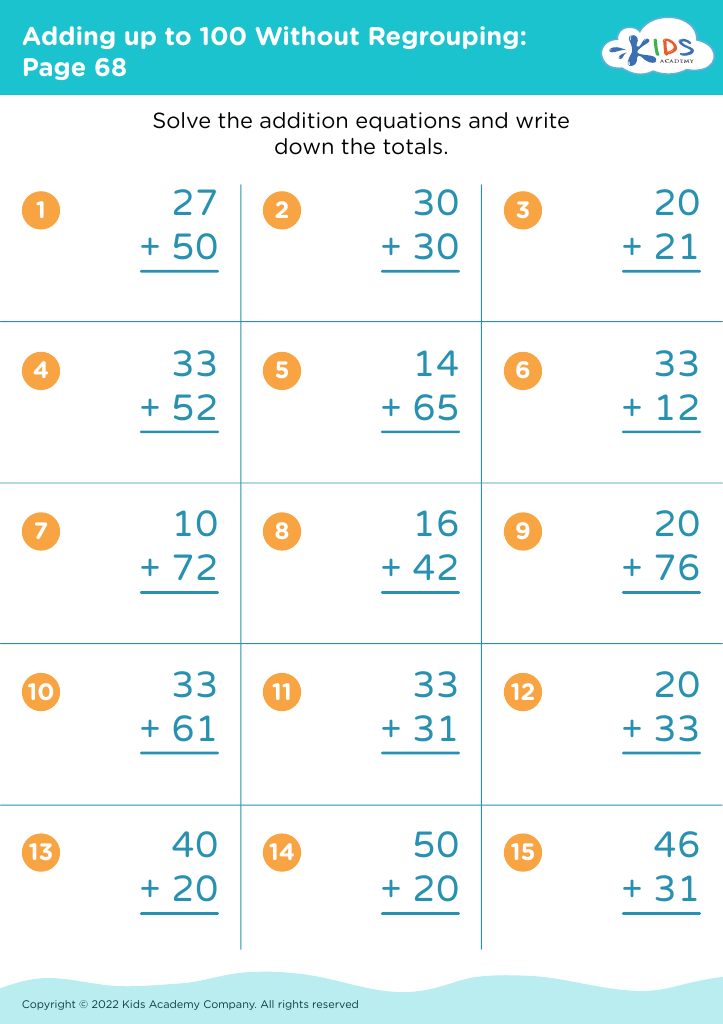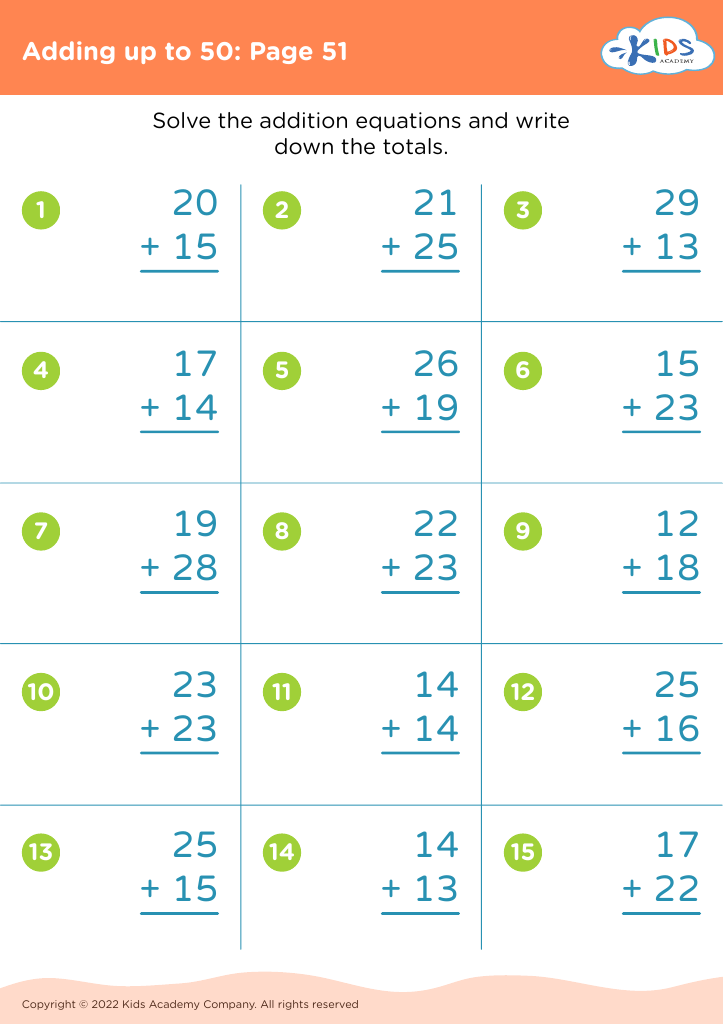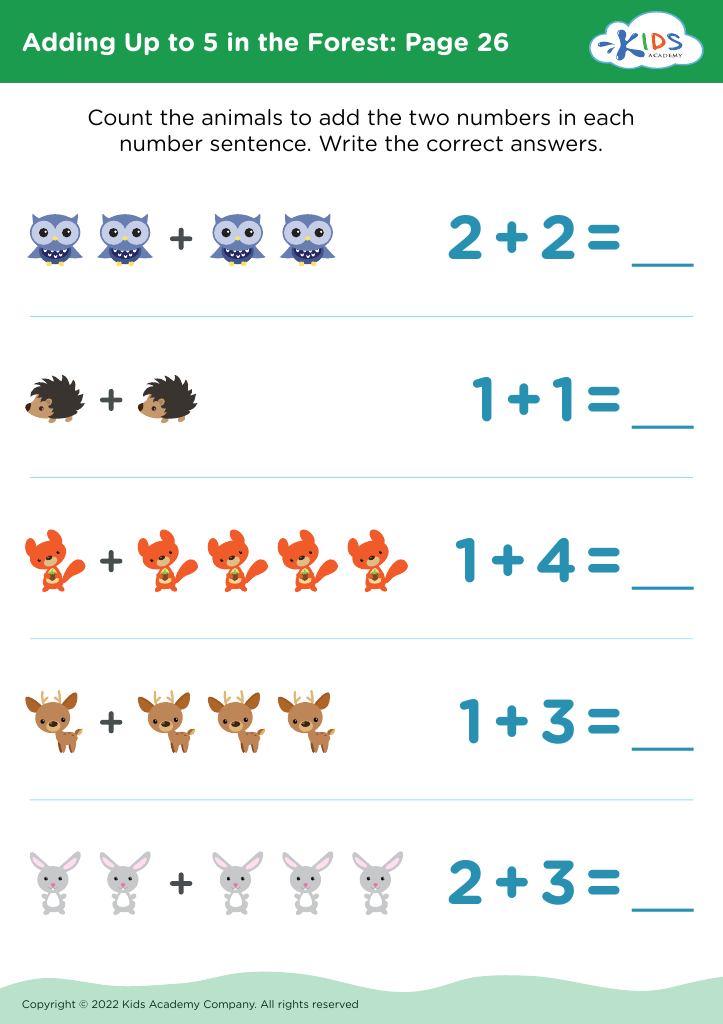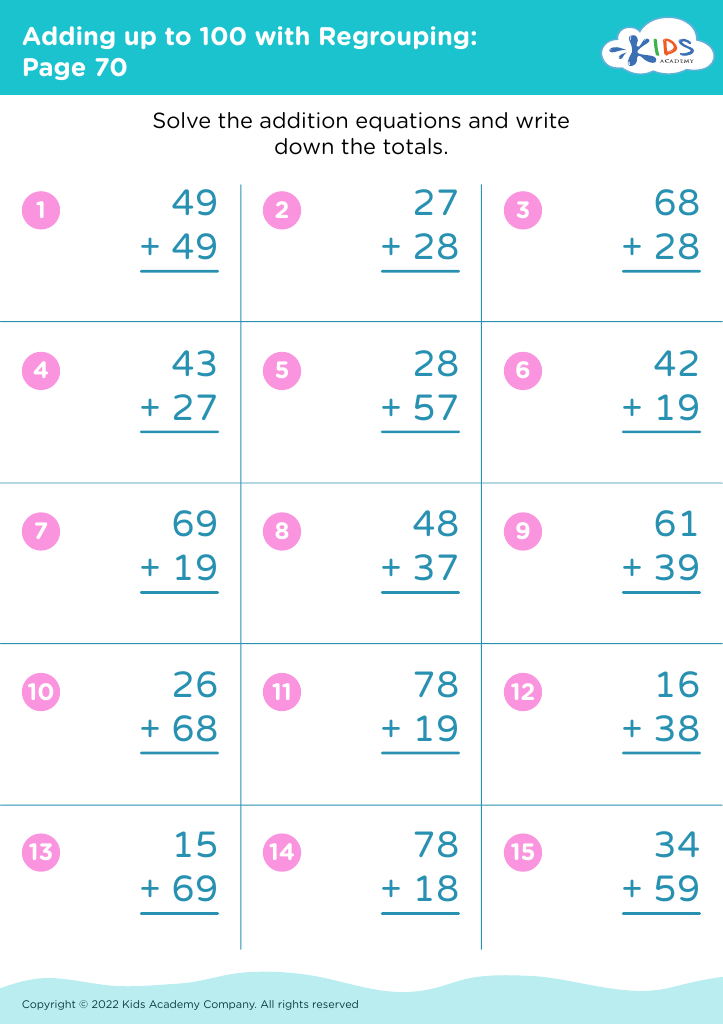Developing problem-solving skills Math Worksheets for Ages 3-8
10 filtered results
-
From - To
Our "Developing Problem-Solving Skills Math Worksheets for Ages 3-8" are designed to enhance young minds through engaging and age-appropriate challenges. These worksheets focus on fostering critical thinking and analytical skills through various math problems, including basic addition, subtraction, patterns, and logical reasoning exercises. By using fun themes and interactive puzzles, children will enjoy the learning process while strengthening their problem-solving abilities. Perfect for preschool to early elementary students, our printable worksheets provide a strong foundation in math that will benefit their academic journey ahead. Start developing your child’s problem-solving skills with our expertly crafted resources today!
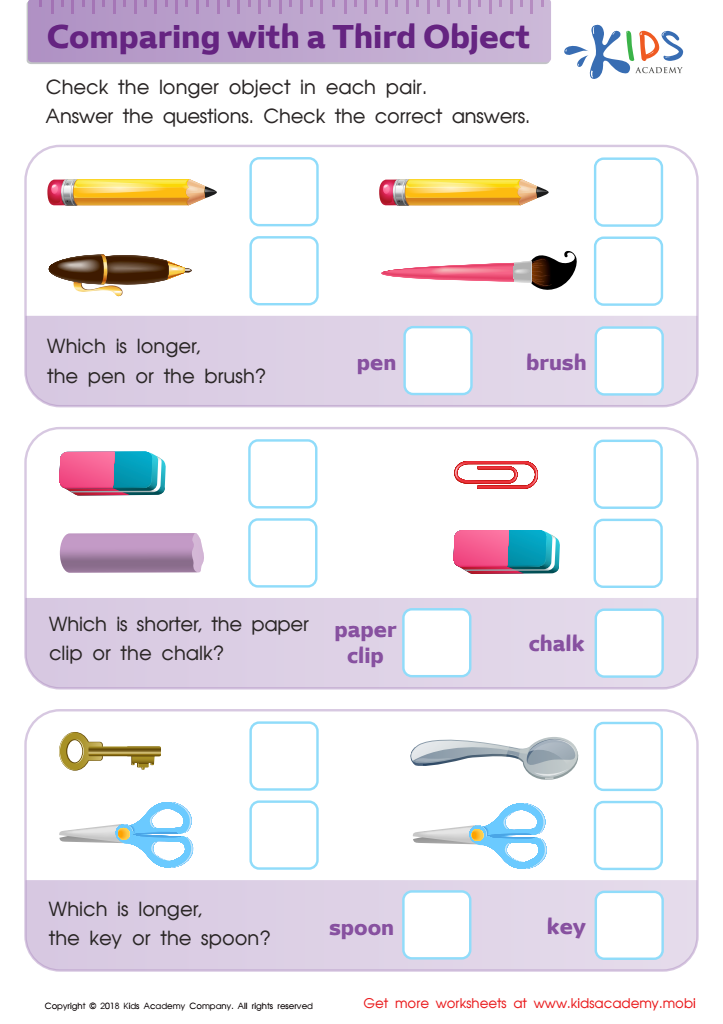

Comparing with a Third Object Worksheet
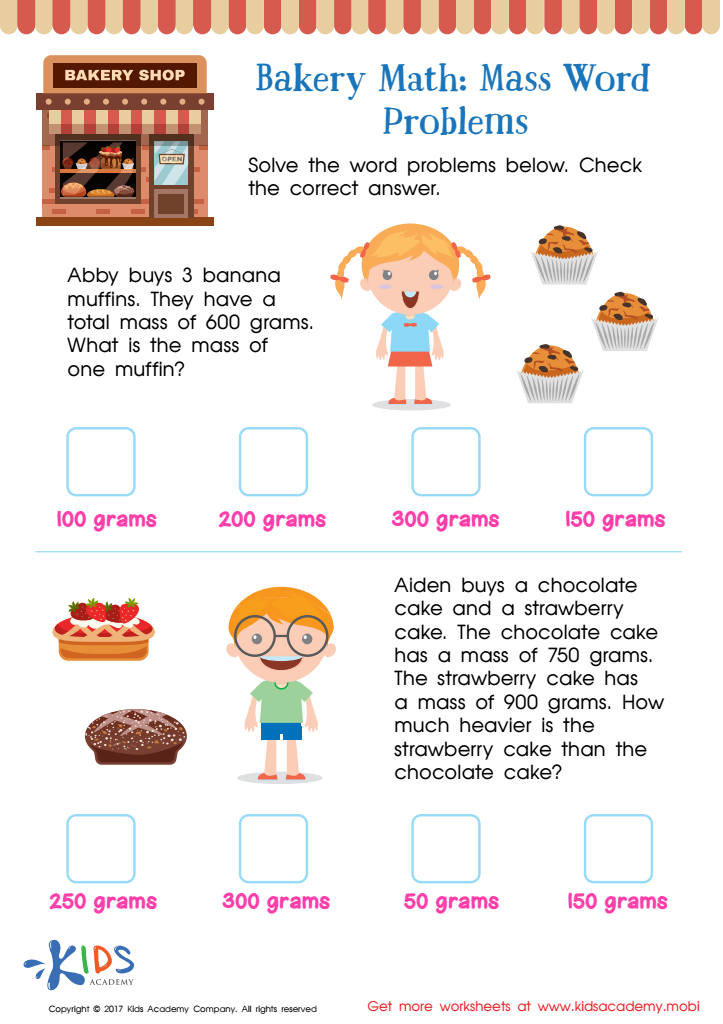

Mass Word Problems Worksheet
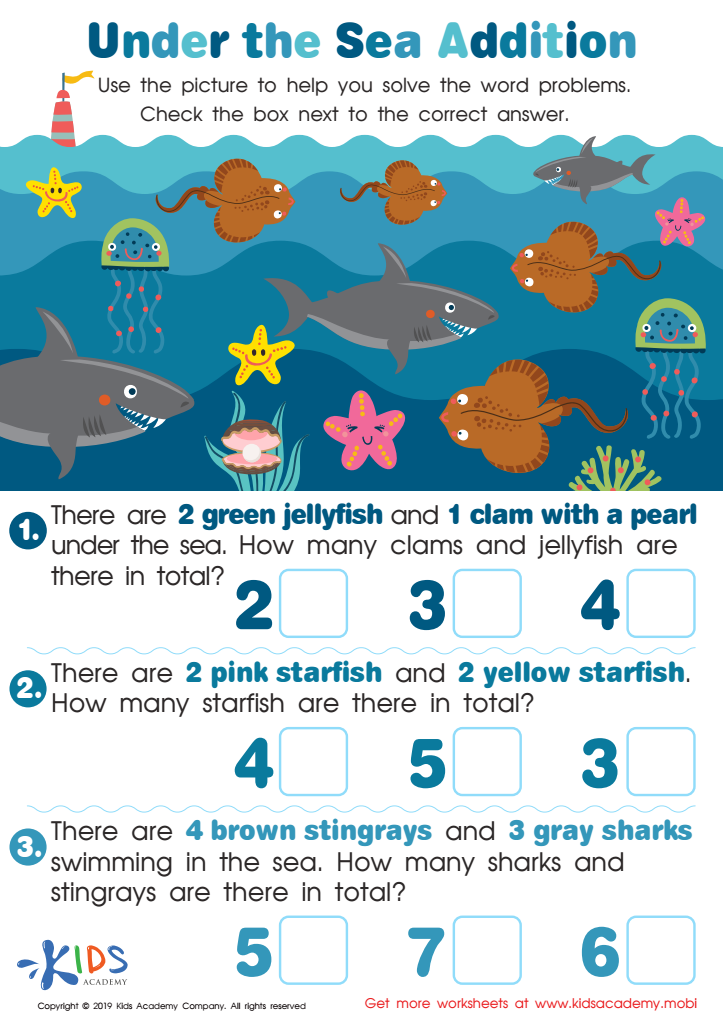

Under the Sea Addition Worksheet
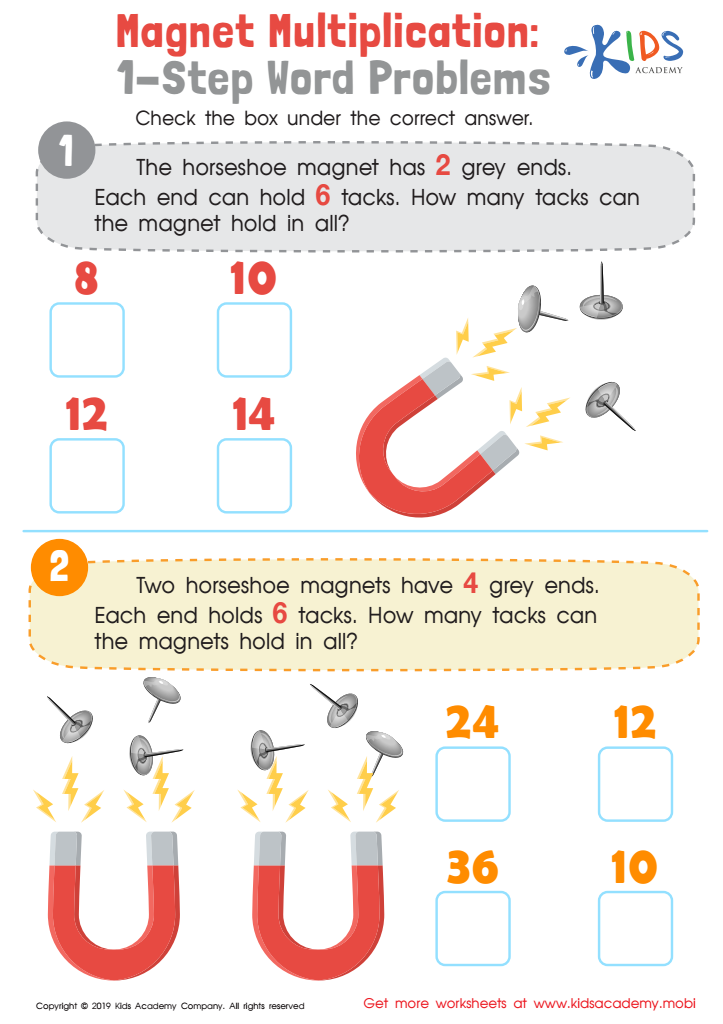

Magnet Multiplication: 1-Step Word Problems Worksheet
Developing problem-solving skills in math for children ages 3-8 is crucial for several reasons. At this early stage, kids' brains are exceptionally receptive to learning and establishing foundational cognitive pathways. Teaching math-based problem-solving helps cultivate critical thinking, logical reasoning, and perseverance—skills that are not only central to mathematical success but also transferable to everyday life situations.
Firstly, early math problem-solving activities encourage curiosity and a growth mindset, where children learn to see challenges as opportunities for learning rather than insurmountable obstacles. This mindset is valuable for lifelong learning and personal development.
Secondly, these skills help build confidence. As young learners work through age-appropriate math problems and experience success, they gain a sense of accomplishment and self-efficacy. This positive reinforcement motivates them to tackle more complex problems in the future.
In addition, math problems often have more than one solution or can be approached in different ways. This aspect fosters creativity and flexibility in thinking—important traits in today's dynamic world. Working with numbers and spatial reasoning also enhances memory and cognitive development.
Lastly, early math experiences lay the groundwork for future academic performance. Numerous studies have shown a strong correlation between early math skills and later success in school, not just in mathematics but across various subjects.
Engaging young children in problem-solving activities in math equips them with essential life skills, encouraging a confident, creative, and resilient approach to both academic and real-world challenges.
 Assign to My Students
Assign to My Students
